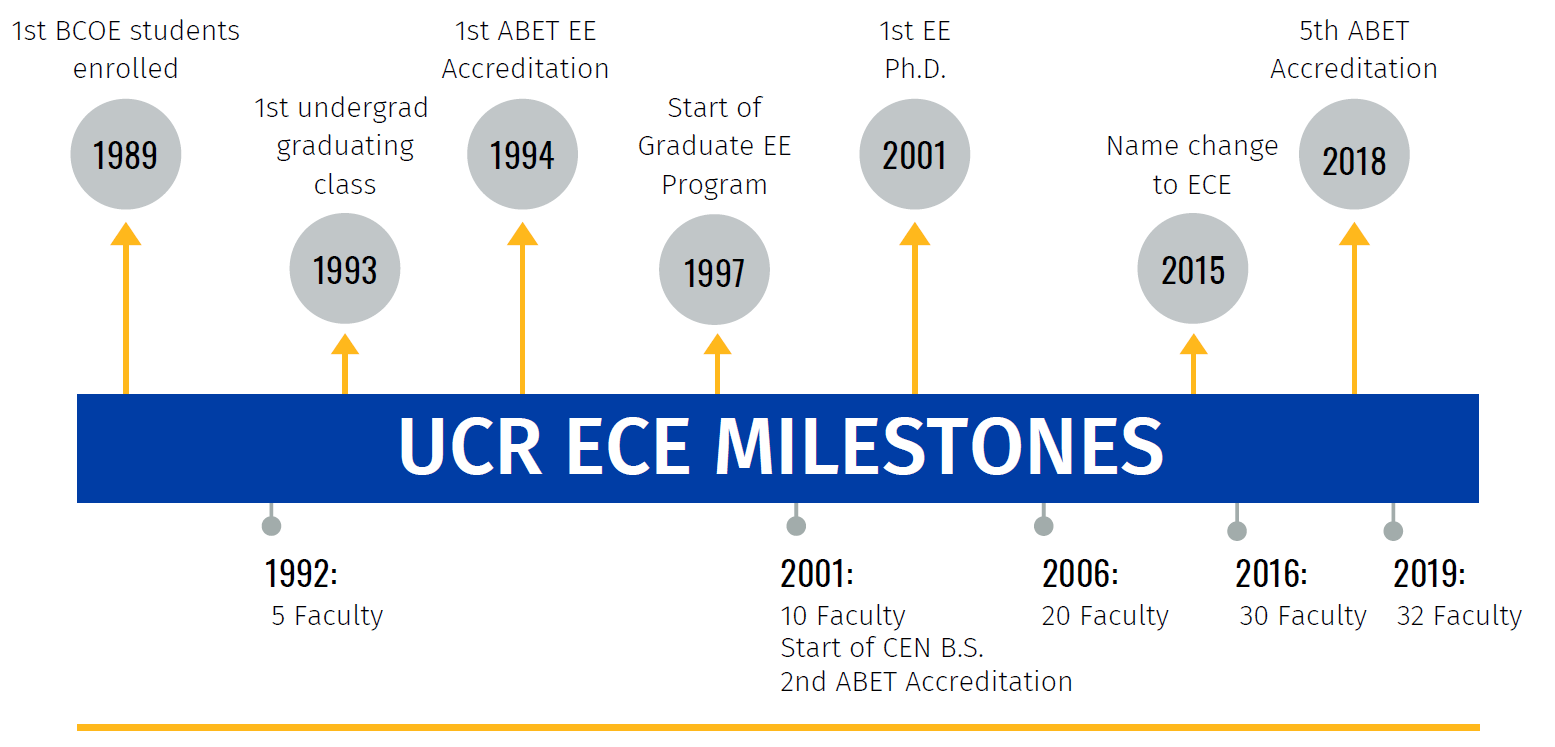History
The ECE department was established in 1989 as a Bachelor of Science Program in Electrical Engineering and has since progressed rapidly to become one of the premier international departments. It has leading research in several areas, and strong undergraduate and graduate programs. The Bachelor of Science in Electrical Engineering program awarded its first undergraduate degrees in 1993, received its first ABET accreditation in 1994, and became the Electrical Engineering Department in 1998. A graduate program with Master of Science and doctoral degrees was established in fall of 1997 and awarded its first doctoral degree in spring 2001. The department changed its name to the Electrical and Computer Engineering department in 2013. Today the ECE department enrolls over 500 undergraduate students (in the Bachelor of Science Programs in Electrical Engineering and Computer Engineering) and over 200 graduate Master of Science and doctoral students.
Since it was founded, the department and its faculty have been housed in three distinct locations. Originally, the Electrical Engineering department and the entire College of Engineering were temporarily housed in University Office Building. In 1994, the first engineering building was constructed. This was named Bourns Hall, thanks to the $6M gift from Marlan and Rosemary Bourns. Bourns Hall was opened in 1995 and originally housed the entire Bourns College of Engineering (BCOE). As the college faculty grew, a second engineering building was constructed, which included new offices for Electrical Engineering and Computer Science faculty, College staff, and dry teaching and research labs. ECE Department moved to this new building in 2005. In the 2011-2012 academic year, this building was named Winston Chung Hall (WCH) thanks to a grant in excess of $10M donated by Winston Chung.
The faculty size and research achievements continue to grow. Currently the department has over 30 tenure-track faculty, with over two third of the faculty achieving the high distinction of being elected Fellows in their professional societies. Many of the junior faculty have received prestigious young investigator awards, such as the National Science Foundation CAREER award. The average research expenditure of the department exceeds $10 million a year. The department is ranked 24th in the US in the latest National Research Council doctoral program ranking (average of the S-rank ranking).
